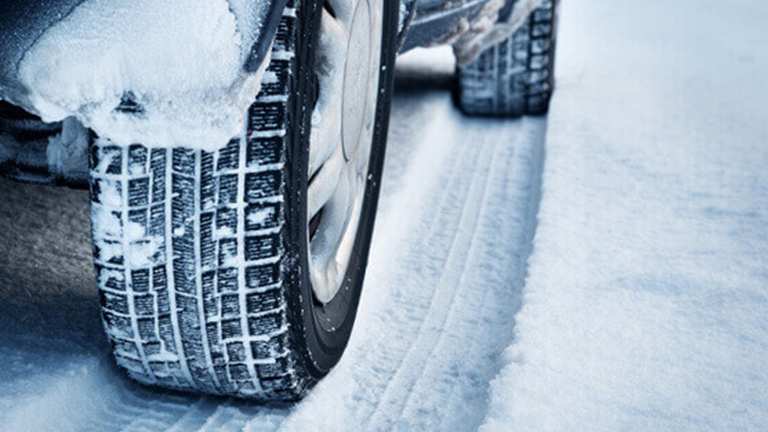
The benefits of our car insurance
Which level of Aviva Signature car insurance cover is right for you?
We offer two types of Aviva Signature car insurance cover. We've kept it simple. You can choose between comprehensive or third party, fire and theft cover.
Comprehensive car insurance
Comprehensive cover is a level of car insurance that covers you for more than just fire or theft, it will also cover you for accidental damage as well. With comprehensive cover, you also have additional benefits, and the option to explore additional add-ons.
Third party, fire and theft insurance
While this is our lower level of cover, it gives you more cover than the basic ‘third party’ cover that everyone legally needs on the road in the UK. However, third party, fire and theft won't cover you or your car, so you'll have to pay for any damage to your own car, and for any costs if you're injured.
What does our car insurance cover?
In short, it covers you against the cost of accidents, damage and theft. Exactly what we cover and how much for is down to the level of insurance you choose.
Our comprehensive car insurance also covers electric and hybrid vehicles
- Cover for your vehicle and charging cables, including theft, damage, or loss.
- Wave goodbye to range anxiety - if your electric vehicle runs out charge, we'll send an RAC mechanic to either charge your battery to get you to a working charging point or transport you, your vehicle and up to seven passengers to a working charging point or your home, whichever is closer. Geographical restrictions apply. Must be over 1/4 mile from your home address. Comprehensive cover only. Excludes hybrids.
- We cover accessories such as charging cables (in your vehicle and while in use), as well as wallbox chargers installed in your garage
Compare the levels of Aviva Signature car insurance cover
Aviva Signature car insurance is there so that bumps, scrapes or crunches to your car keep any dents in your routine or bank balance to a minimum. Here’s what each level of our insurance will protect against.
Unfortunately, we can't cover everything - make sure you're happy with what's not covered by checking our motor insurance policy wording.
| Comprehensive Car | Third Party Fire and Theft | |
|---|---|---|
| Loss or damage Money towards a new car if someone steals yours, or we'll arrange and pay for repairs if they're needed after an accident or fire |
The market value of your vehicle | Included Fire and Theft only. The market value of your vehicle |
| What you owe others If you injure someone, damage their vehicle or property in an accident, we'll pay to put it right | Included | Included |
| Uninsured driver cover If you're hit by an uninsured driver and it wasn't your fault, you won't lose your No Claim Discount. We'll also refund any excess you've had to pay. You'll need to give us the details of the other vehicle and driver | Included | Not included |
| Vehicle recovery If your vehicle's in no shape to drive after an accident or fire, we'll deliver it to one of our approved garages. We'll take you and your passengers home, get you where you're going or pay up to £500 towards the cost of an overnight stay or public transport. Geographical restrictions apply | Included | Included Fire and Theft only |
| Driving other cars Cover for driving someone else’s car if you’re 25 or over at the start of the policy, you're the vehicle policyholder and the vehicle owner has given you express consent. It covers any third party costs, but not repairs to the vehicle. Subject to eligibility criteria | Included | Not included |
| Legal costs We’ll contribute towards legal expenses incurred as a result of an accident where you are found legally liable | Included | Included |
| Motor injury protection Cover for you, your partner or named drivers in case of serious injury or death from a road accident | Included £5,000 per person, per policy year | Not included |
| Individual no claim discount Build up a discount for each vehicle you insure on your policy when you steer clear of claims | Included | Included |
| Hang on to your no claim discount If you make a claim for loss or damage that wasn't your fault - such as incidents involving potholes, severe weather, flooding, or animals - your no claim discount will remain unaffected | ||
| Electrical breakdown Should you have glitches with your on-board computers, and any other electrical parts | ||
| Tyres Any punctures, cuts or bursts - even if they're caused by braking |
Boost your insurance with our optional add-ons
You can customise your cover to suit your specific needs. As you progress through your quote, you’ll have the option to include additional features, with the associated costs clearly displayed. Before finalising your purchase, you’ll be able to review and confirm which extras you’d like.
Protect your no claim discount
Motor legal services
Courtesy car
Motor Injury Protection Plus
UK Breakdown cover
European use
Explore different types of vehicle cover we offer
Regular cars aren’t the only way you might be zipping around. Cover more than one vehicle. Keep a van on the move. Or just cover yourself for a weekend away.

Save with our Aviva Signature multi car cover
If you have two or more cars at your house, the savings on your insurance with us can stack up. You get 10% off when you add additional cars or vans to your policy. Discount doesn't apply to optional extras. Footnote [4]
Why choose us for Aviva Signature car insurance?
Our cover has been given a 5 Star Rating by Defaqto. Their experts lift up the bonnet of our policies, and sift through every nut, bolt and washer – it’s not based on opinions or hearsay.

Aviva Signature car insurance FAQs
How do you work out my car insurance price?
What's the difference between a principal policyholder, a vehicle policyholder and a named driver?
Do I have to use an approved repairer or specialist?
Am I covered to drive other vehicles?
Will my car insurance allow me to drive abroad?
Policy documents

Our chatbot can connect you to the answers and people you need
If you can’t find what you’re looking for, our chatbot can give you instant support around the clock, help you manage your account or point you in direction of the right team if you need to speak to someone.
Learn about motoring
From everyday essentials to the finer details, our straightforward guides help make motor-related topics easier to understand.

Driving
Driving in bad weather
Top tips for tackling the dangers of driving in rain, snow, ice, wind and fog.
-

-

-

Driving
When did I pass my driving test?
How to find out the exact date you passed, and why you might need to know.






